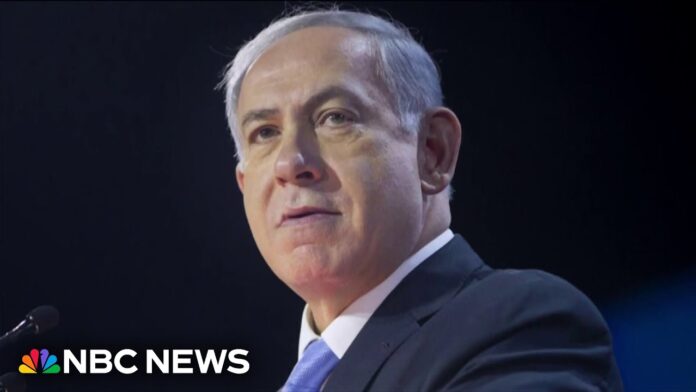Exploring the implications and global reactions to the possible ICC war crimes charges against Israeli Prime Minister Netanyahu
The International Criminal Court (ICC) in The Hague is reportedly on the verge of charging Israeli Prime Minister Benjamin Netanyahu and other top Israeli officials with war crimes, sparking a complex international debate. This potential legal action primarily focuses on accusations of a starvation strategy targeting Palestinian civilians in Gaza, a tactic deemed as war crime under international law. Despite Israel’s robust defence strategies citing self-defence, the global response varies, with significant international legal and diplomatic ramifications at play.
The Guardian
The Guardian article highlights Kenneth Roth’s analysis in The Guardian outlines significant concerns for Netanyahu as the ICC nears a decision on war crimes charges. The article delves deep into the ICC’s focus, particularly on Netanyahu’s policies in Gaza, which allegedly include a starvation strategy amidst the ongoing blockade. Roth points out that despite Israel’s claims of self-defence, the ICC’s charges are likely to centre on how these defences were executed, particularly actions that disproportionately affect civilians.
The ICC’s inability to conduct investigations directly in Gaza due to Israeli restrictions has not hindered its pursuit of evidence. Available data suggests severe restrictions on essential supplies, leading to acute shortages and malnutrition among Gaza’s civilian population. Netanyahu’s defence strategy, which seems to pivot on the adequacy of Israel’s internal legal mechanisms and challenges to the ICC’s jurisdiction, is likely to face significant scrutiny. The overarching narrative of Roth’s analysis presents a scenario where geopolitical relations could shift dramatically, especially in how global powers like the U.S. and European nations respond to the enforcement of international law.
First Post
The First Post focuses on the United States’ opposition to the ICC’s probes into alleged Israeli war crimes in Gaza, framing it within the broader context of international diplomacy and its potential impact on ceasefire negotiations with Hamas. According to the article, the U.S. administration has expressed concerns that the ICC’s actions could jeopardize the ongoing peace efforts. White House Press Secretary Karine Jean-Pierre emphasized that the U.S. does not recognize the ICC’s jurisdiction in this matter, reflecting a longstanding tension between international judicial authority and national sovereignty.
This coverage underscores the delicate balance of international relations and the strategic calculations behind the U.S. stance, which appears to prioritize regional stability and its diplomatic relations with Israel over considerations related to international judicial processes. The report also touches on the internal Israeli political landscape, where Netanyahu has leveraged this international scrutiny to rally domestic support, portraying the ICC’s potential charges as an infringement on Israel’s sovereignty and a threat to its security.
New York Times
The New York Times offers a detailed account of the anticipation within Israeli political circles regarding the ICC’s potential issuance of arrest warrants for senior Israeli officials, including Netanyahu. The coverage provides insights into the internal Israeli and international perceptions of the ICC’s moves, suggesting a significant impact on Israeli military and political strategies. The potential charges, according to the NYT, could encompass not just actions in Gaza but also broader accusations related to the obstruction of humanitarian aid and disproportionate military responses.
The article elaborates on how these developments might influence Israel’s tactical decisions in ongoing military engagements in Gaza. It also discusses the broader implications for international relations, particularly the potential isolation of Israeli officials from international diplomacy and the stigmatization accompanying ICC charges. The report captures a broader picture of the challenges facing Israel as it navigates the complexities of international law, war crimes accusations, and the global political implications thereof.
Axios
The Axios report provides a unique perspective on the interaction between U.S. domestic politics and the international issue of ICC investigations into Israeli actions in Gaza. It specifically covers President Joe Biden’s remarks at the White House Correspondents’ Association Dinner, where he used humour to address his political opponents and the serious undercurrents of U.S. foreign policy, particularly in relation to Israel and Gaza. The article illustrates how domestic public events and perceptions can intertwine with international diplomatic strategies, particularly highlighting the American public’s and media’s reaction to the ongoing conflict and judicial proceedings.
The piece details how Biden’s administration is navigating the delicate balance between supporting Israel, a key ally and adhering to international norms regarding human rights and war crimes. The protests outside the dinner, as covered by Axios, underscore the contentious nature of U.S. support for Israel amid allegations of war crimes, reflecting a deeply polarized American populace. This coverage adds depth to understanding the broader narrative of how the ICC’s actions resonate on various levels, from international law to domestic politics and public opinion, revealing the complex layers of diplomacy and governance that Biden must manage.
